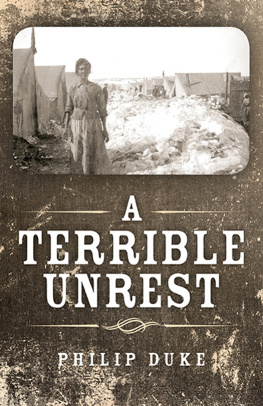


To my mother, Karen Macko, for truly instilling in me the belief that Anything Is PossibleLia Macko
To my husband, Adam Leitner, for always being my compassKerry Rubin
Contents
Chapter 6: Escaping the Sequential Success Trap:
Finding Happiness, Maintaining Equal Partnerships, and Redefining Family
Chapter 7: Navigating the New Glass Ceiling:
Finding the Right Fit in the Work-Family Puzzle
Chapter 8: Tactical Maneuvers:
Strategies, Pragmatism, and the Power of Perseverance
Chapter 9: Changing Direction:
Deliberate Action, Definitive Results
Chapter 10: Letting Go of Perfect:
Getting over Yourself to Get the Life You Want
Chapter 11: Guts and Grace:
Staying on Course When It Counts
Acknowledgments
LIA MACKO
Thanks to my wonderful parents, Karen and Mike Macko, who have supported every unconventional career choice I have ever made with full faith in my judgment and the final resultthis is a gift of encouragement for which I am truly grateful. A thank you to my effortlessly brilliant brother, James Macko, of whom I am so proud, and who helped me master the art of laughing at myself at an early age.
To the inspiring women in my family of several generationsgreat-aunts who owned and operated businesses when few women did; my grandmother, Mary Rulli, who supported my own working mother by providing exceptional daily child care; and the next wave of beautiful and talented young womenyounger goddaughters and cousins Jackie Bronder; Lexie Stock; Blaise Rulli; and Trina, Molly, and Margo Orlando, who will surely achieve impressive success in a world that will continue to present new opportunities to women.
Thanks to wonderful and supportive friends and readers: Albert Garcia and my Miami family for your support, hospitality, and endless generosity; Teresa Myers for inspiring me in life with your own wise decisions; Sam Hollander for your wit and for your friendship in good times and bad; Jill Robert for your gift for assembling great and fun women for unforgettable weekends and trips; and John Patrick Shanley for serving as a wise guide and loyal friend.
KERRY RUBIN
When I was growing up, whenever wed watch the Oscars, Ms. America, or any other awards ceremony on TV, my father would always say, See, [insert name of winner] must be a good person. They thanked their parents first. It is in that spirit that I would like to first thank Eric and Shelley Rubin. I am so grateful for your encouragement, love, guidance, and steady faith in me.
I also would like to thank my wonderful mother, Beverly Joyce, and all of my brothers and sisters (whom I am lucky enough to also call my friends): Josh and Gudrun Rubin, Alexis Rubin, and Andrew Rubin. A few of the other women in my family who continually inspire me deserve special thanks, too: my mother-in-law, Patricia Leitner; my grandmother Hilda Kiok; and my grandmother Dorothy Rubinthe classiest woman Ive ever known.
Extra thanks to thoughtful and caring readers whose smart insights have helped me both in my life and with this project: Shelley Rubin, Rochelle Rubin, Gudrun Rubin, and Gail Evans. Also to my collegue, Sue Walsh, for sharing astute observations about our evolving thesis.
A special thanks to all of my colleagues at CNNs American Morning and CNNs Central Bookings Departmenta group of extraordinarily dedicated journalists, and nice people.
Last but most important, I want to thank my husband, Adam, for showing me the true meaning of support and understandingand a love beyond my imagination.
SHARED
Lia and Kerry would like to thank some special people together. First, our agent, Elizabeth Kaplan, for her immediate support of the book projectwe appreciate your impressive and effective advocacy and thank you for being there for us each step of the way. We would also like to thank Tami Booth Corwin, Rodale vice president and editor-in-chief, for her vision and for believing in the need for the discussion this book seeks to launch. Our talented editor, Mariska van Aalst, kept us on task and provided us many favors and much flexibility; thank you for going above and beyond so many times. And thanks to our publicists, Cathy Gruhn and Louise Braverman, whose enthusiasm and creativity are beyond impressive.
Lia would like to thank Laura Ingraham and Kerry would like to thank Joy DiBenedettotwo long-time and important friends who support us in every part of our lives and additionally provided enthusiastic and enduring support for the book. Thanks for always coming through in every way that counts.
And on that note, we offer special thanks to Marie Brenner, who believed in the project before we did and encouraged and helped us in meaningful ways throughout the entire process.
Finally, we are indebted to all the women who shared their stories with us. We thank our peers for their very honest revelations about their lives, and we thank the women of the New Girls Club for their equally honest and compelling thoughts about what they have learned.

INTRODUCTION
Why Are Baby Boomers Daughters Melting Down instead of Rallying for Change?
E VERY GENERATION HAS ITS OWN STORY, and ours is no exception. Over the past 30 years, somewhere between Joan Baez and Lil Kim, what it means to be successful woman has changed completely. Our mothers lit the fuse by battling workplace discrimination and gender politics. They burned their bras, took on Washington, and won women unprecedented opportunities for professional advancement. In order to take full advantage of the doors our mothers kicked open, the women behind them and in front of uswomen now in their midfortiestook on their ticking clocks, setting new timetables for childrearing while mainstreaming new heights of achievement among working women. Our generations story is fueled by both the progress and the unfinished business of the women who came before us. It has unfolded, but it has yet to be told.
From rebellious flappers to free-love hippies, other generations of women have broken rules, charted new territory, and grappled with the results with a relatively unified voice. Now, young women like us are wrestling with a new round of rule breaking and the sociological seismic shift it is creating. But our generations story is playing out differently than that of our grandmothers, mothers, or older sisters. Our moment of upheaval is a strangely quiet one because women in their twenties and thirties are unaware of the similarities in the obstacles theyre facing and oblivious to the fact that their individual dilemmas emanate from a tsunami of shared and profound cultural change.
Over the past two years, we interviewed more than 100 college-educated women, ages 25 to 37, across the boundaries of salary, race, geography, and experience. While the women we spoke to each had a different story, a strikingly similar theme emerged. All of them came of age during or after the womens movement, and all were raised to believe that their futures were defined by
Next page








